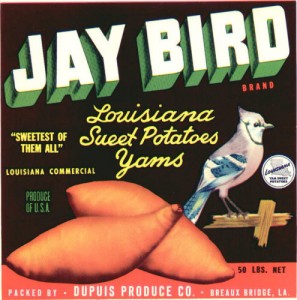Groups that hold themselves out as representing the interests of consumers don’t tend to represent actual consumers’ interest in free trade [Sallie James]
Posts Tagged ‘Public Citizen’
Product liability roundup
- “The Emperor’s Clothes: Should jury bias against corporations receive legal recognition?” [Michael Krauss on Alabama legal malpractice case]
- Which did more to compromise gas can usability, regulation or liability? [Coyote, Jeffrey Tucker a year ago at LFB, earlier here, etc.]
- Wow: Litigation Lobby stalwart Joan Claybrook signs her name to letter claiming there’s “no evidence” of “significant fraud” in asbestos litigation [WSJ letter] “Peter Angelos’s Asbestos Book” [WSJ] “House panel passes asbestos trusts transparency bill” [Law360, Chamber-backed Legal NewsLine]
- “Indiana’s ‘Government Compliance’ Presumption Against Defect and Negligence” [John Sullivan, D&DL]
- CPSC Commissioner Nancy Nord on the commission’s certificates of compliance;
- A way to head off the product-suit technique for bypassing workers’-comp limits? “Pennsylvania Supreme Court Allows Waivers for Future Negligence by Third Parties” [Krauss, Point of Law]
- California cities’ lead-paint-as-nuisance suit may be headed for trial [Max Taves, Recorder]
“‘People’s Rights Amendment’ Would Knock Out People’s Rights”
George Will gets to the essence of this grotesque assault on civil liberties, fed by demagoguery over the Supreme Court’s Citizens United decision:
McGovern [Rep. Jim McGovern, D-Mass.] stresses that his amendment decrees that “all corporate entities — for-profit and nonprofit alike” — have no constitutional rights. So Congress — and state legislatures and local governments — could regulate to the point of proscription political speech, or any other speech, by the Sierra Club, the National Rifle Association, NARAL Pro-Choice America or any of the other tens of thousands of nonprofit corporate advocacy groups, including political parties and campaign committees.
Newspapers, magazines, broadcasting entities, online journalism operations — and most religious institutions — are corporate entities. McGovern’s amendment would strip them of all constitutional rights.
Incredibly, versions of this radical rights-stripping measure has been endorsed through resolutions by the state legislatures of Vermont, Hawaii, and New Mexico, with backing from groups like Public Citizen. [Ilya Shapiro and Kathleen Hunker, Cato; Hans Bader, CEI; earlier] More: Professor Bainbridge (“utterly moronic”)] Among sponsors of this extraordinary measure: Reps. Earl Blumenauer (Ore.), David Cicilline (R.I.), Steve Cohen (Tenn.), John Conyers, Jr. (Mich.), Jim Cooper (Tenn.), Peter DeFazio (Ore.), Eliot Engel (N.Y.), Sam Farr (Calif.), Bob Filner (Calif.), Gene Green (Tex.), Raul Grijalva (Ariz.), Janice Hahn (Calif.), Martin Heinrich (N.M.), Maurice Hinchey (N.Y.), Jesse Jackson, Jr. (Ill.), Walter B. Jones, Jr. (N.C.), Barbara Lee (Calif.), Jim McDermott (Wash.), Christopher Murphy (Ct.), Richard Neal (Mass.), Eleanor Holmes Norton (D.C.), John Olver (Mass.), Chellie Pingree (Maine), Louise McIntosh Slaughter (N.Y.), Adam Smith (Wash.), John Tierney (Mass.), and Peter Welch (Vt.). Murphy is running for an open U.S. Senate seat in Connecticut.
A reminder: anti-arbitration is anti-consumer
The Center for Class Action Fairness filed an amicus brief yesterday on behalf of consumers in the Supreme Court case of AT&T Mobility v. Concepcion; Public Citizen brought a suit successfully striking an arbitration provision in a cell-phone contract as “unconscionable” because it did not provide for bringing class actions—even though consumers as a whole would be better off with the generous arbitration provision than with opportunity for the class action. Of course, then trial lawyers lose out. More at Point of Law; and Public Citizen’s page on the case has other briefs and links to (generally pro-trial-lawyer) blog commentary.
“Proposed Facebook Settlement Comes Under Fire”
The March 2 Wall Street Journal (link dead after 7 days) covers all-for-charity-none-for-the-class “cy pres” settlements of Facebook and AOL—the latter of which was the subject of a Center for Class Action Fairness objection:
Late last year, in a class action claiming that tech giant AOL LLC improperly inserted footers in its users’ emails, Los Angeles federal judge Christina Snyder awarded $25,000 in settlement funds to a Los Angeles legal-aid organization that has the judge’s husband on its board. …
The Virginia-based [sic] Center for Class Action Fairness objected, claiming the settlement raised a conflict of interest. Ted Frank, president of the group, said that to avoid potential conflicts, it would be better to require unclaimed settlement funds to be deposited into state coffers. “The problem is that parties can now give money to a judge’s preferred charity in the hopes that it will prompt the judge to rubber stamp a settlement,” he said.
CPSIA chronicles, September 20
- Rep. Michael Burgess (R-Tex.) doesn’t think Rep. Waxman’s pretend hearing Sept. 10 was enough, and writes a letter to Reps. Waxman and Rush (PDF courtesy Motorcycle Industry Council) explaining why a real hearing is needed (including as an addendum my WSJ piece from last Monday).
- Speaking of CPSIA author Rep. Bobby Rush (D-Ill.), he’s praised the new rhinestone ban [Woldenberg]
- At the Wall Street Journal, a letter to the editor regarding my op-ed of last week generally agrees with its thrust but claims that I “[err] when assigning blame to consumer groups” among others for the enactment. I find this charge baffling, since groups like Public Citizen, PIRG and the Consumer Federation of America 1) were routinely cited in the press during the bill’s run-up to enactment as key advocates of its more extreme provisions, 2) have loudly claimed credit for enacting those provisions and the overall bill ever since, 3) have been routinely cited this year in the press as key opponents of any effort to revisit the law in Congress. Why strive to excuse them from a responsibility that they gladly shoulder? Carter Wood at ShopFloor also notes that labor unions unwisely cheered on their purported consumer-group allies, a stance one hopes they are rethinking in light of the statute’s actual effects on American employers and jobs.
- BoardGameGeek had a discussion of the law again this summer, mostly focusing on the tracking label rules and the burden they pose to makers of new games, but also noting the thrift/reseller effects (earlier). Meanwhile, Handmade Toy Alliance activist Dan Marshall notes on Twitter, “Just spoke with guy who invented a board game about dinosaurs. He’s paying $2400 to get it tested 4 #CPSIA and is mad as hell about Mattel.”
- So let’s all panic now: NPR reports minute amounts of lead alloy in a Disney-branded zipper.
- Before CPSIA came along, Illinois lawmakers enacted their own lead law which, stunt-like, sets an even lower permissible lead level often flunked by common substances such as ordinary garden dirt, according to Rick Woldenberg (earlier on dirt, and related on rocks). More: Wacky Hermit.


PUBLIC DOMAIN IMAGES from Ethel Everett, illustrator, Nursery Rhymes (1900), courtesy ChildrensLibrary.org.
CPSIA chronicles, April 24

- Understatement alert: per the official Congressional Research Service on Capitol Hill, “For the moment…one thing seems certain: implementation of the CPSIA is not going well.” [report in PDF format courtesy ShopFloor]
- In Wisconsin, the Madison Children’s Museum has for the past 21 years based its annual fundraiser (July 18, this year) on a big discount sale of American Girl dolls and accessories. Worse luck for them.
- “Anti-recycling”, maybe? Is there a word for what happens when you yank perfectly safe, useful products off shelves by the ton and send them instead to landfills?
- Blast from the past dept.: if you think Public Citizen has made a mess of the risk and science issues in its advocacy on behalf of CPSIA, you should check out the world-class mess it made when it enlisted in the trial lawyer campaign against silicone breast implants, to name but such one campaign of many.
- Powersports dealers wary of whether new stay of enforcement really protects them [DealerNews, Sioux City (Iowa) Journal]
- The first senior, influential Senate Democrat to acknowledge that CPSIA needs fixing? Montana’s Max Baucus is willing at least to sign on to a legalize-minibikes bill.
- In the comments section on NPR’s phthalates story earlier this month, one of the most-recommended comments was that by Steven Tesney of Houston, who wrote, “As a result of CPSIA and the surrounding political grandstanding, my small home-based company will be going out of business. I design clothing for ‘Alternative’ families with infants, toddlers & kids. My products are organic and use natural dyes but because of new testing requirements that are completely cost prohibitive, I will be forced – along with hundreds of thousands of crafters, artisans and other small business owners – to close my doors. The only companies that will be able to afford the testing will be large corporations (many from China). Mass produced goods win while homemade, handcrafted goods lose. Say goodbye to the charming hand carved wooden toys & crocheted baby caps that you take to baby showers. Say hello to a plethora of licensed products staring back at your children.”
- “CPSIA and the black market” [Wacky Hermit]

Public domain image courtesy ChildrensLibrary.org: Walter Crane, illustrator, The Baby’s Aesop (1887)
HR 875 and local food: is Rep. DeLauro backtracking?
[Third in a series on the possible effects of proposed federal food safety legislation on small/local foodmakers and farmers. Earlier coverage is here and here; and see related post on animal-tracking proposals]
- Could the outcry be having an effect? Until now, Rep. Rosa DeLauro (D-Ct.) has repeatedly insisted that backyard and kitchen-table producers have nothing to fear from her bill, H.R. 875, the proposed Food Safety Modernization Act, because they do not engage in “interstate commerce”.
 Many observers pointed out that under U.S. Supreme Court precedent, an exceedingly broad range of agricultural and food activity (right down to the growing of grain with which to feed oneself or one’s animals) has counted as within the bounds of “interstate commerce” reachable by federal regulation.* Now, at the end of a Huffington Post piece sympathetically relaying DeLauro’s views, there comes an “Update” nodding toward the courts’ practical application of the “interstate commerce” concept and reporting that DeLauro’s staff is promising “clarifications” of the bill’s reach, perhaps even “technical corrections”, to be ready “in the next few weeks”.
Many observers pointed out that under U.S. Supreme Court precedent, an exceedingly broad range of agricultural and food activity (right down to the growing of grain with which to feed oneself or one’s animals) has counted as within the bounds of “interstate commerce” reachable by federal regulation.* Now, at the end of a Huffington Post piece sympathetically relaying DeLauro’s views, there comes an “Update” nodding toward the courts’ practical application of the “interstate commerce” concept and reporting that DeLauro’s staff is promising “clarifications” of the bill’s reach, perhaps even “technical corrections”, to be ready “in the next few weeks”. - When those corrections and clarifications appear, one crucial question will be whether they include any de minimis provisions exempting small, local, or informal producers and sellers (of course, these entities might continue to face stringent state or local regulation). As it stands now FSMA, like CPSIA before it, is notable for its lack of de minimis exclusions, as well as its failure to prescribe “scale-appropriate” principles (“tiering”, streamlined reporting, etc.) by which entities that deal in less than industrial volumes might be given the benefit of simpler and less onerous rules.
- Given the stated views of the advocacy groups behind FSMA, I very much doubt that a revised version will in fact exempt producers of food intended for consumption within one state only. Even if it does, however, the law will still cover many persons like Harold Gundersen, who sells food from his Southwest Michigan farm at two suburban-Chicago farmer’s markets and in doing so manages to have legal contact with three states in all:
“We’re highly regulated by state government and federal government,” he said. … [Gundersen] pays $65 twice a year to an inspector from DuPage County, who comes up to Michigan to inspect the apple butter and cider that he sells.
Gundersen is indignant at that last requirement because he doesn’t even process the apple butter and apple cider — he takes his apples down to an Amish man in Indiana who seals them in cans and jugs. Because that facility is already visited by Indiana inspectors, Gundersen sees no reason for a DuPage inspector to take a second look.
“There is nothing for her to look at,” Gundersen said. “She looks at my jars and says, ‘OK, I’ll sign this stuff.'”
Through much of the country — in most of the big cities of the Northeast and Midwest, for example — food grown within a radius of (say) 100 miles will often have crossed state lines.
- FactCheck’s lullaby of reassurance on the subject contains the following passage aimed at readers who might be perceiving FSMA as a far-reaching power grab by the federal government, or something like that:
The bill has 41 cosponsors** and has been endorsed by major food and consumer safety organizations, including the Center for Science in the Public Interest, Consumer Federation of America, Consumers Union, Food & Water Watch, and The Pew Charitable Trusts. Food & Water Watch is a nonprofit organization that advocates for clean water and safe food and is headed by a woman who used to work for Public Citizen, the consumer group founded by Ralph Nader.
 Well! If a bill has 41 cosponsors, it must have been well vetted, right? (CPSIA had 106). And its backers include not only Consumers Union and Consumer Federation of America — both instrumental in bringing us the CPSIA debacle — but also a group headed by an alum of Nader-founded Public Citizen. It’s not as if Public Citizen was the acknowledged leader of the Washington coalition that pushed for CPSIA and has defended it ever since, right? Oh wait.
Well! If a bill has 41 cosponsors, it must have been well vetted, right? (CPSIA had 106). And its backers include not only Consumers Union and Consumer Federation of America — both instrumental in bringing us the CPSIA debacle — but also a group headed by an alum of Nader-founded Public Citizen. It’s not as if Public Citizen was the acknowledged leader of the Washington coalition that pushed for CPSIA and has defended it ever since, right? Oh wait.Center for Science in the Public Interest? That’s the outfit that’s called for federal regulation of the use of salt in foods, and its busybody litigiousness has long furnished copious material for this site. Pew Charitable Trusts (is it now OK for charitable foundations to support legislation?) has long had its hand in a hundred activist causes. And so forth. This is not reassurance; to coin a phrase, it’s de-assurance.
- Deputy Headmistress: “I would believe these consequences were ‘unintended’ if I didn’t see the same consequences from government action over and over again.”
- No, I don’t agree with the chain-email theories that insist that Monsanto, the giant agribusiness firm, is masterminding the push for this law. (Or the counter-push against it, depending on who you talk to. Maybe both!). Since the company’s name is always coming up, however, here’s a link to what the company’s own spokesman had to say on the lefty site Crooks and Liars, which was not quite what I expected (though I’m not sure what I did expect).
- Brian Doherty writes about the furor at Reason (with comments here) and John Schwenkler also weighs in at his blog. And in the comments section of our initial post, check out what “Pelly” has to say about yogurt in Nova Scotia.
*Of course, it’s possible that a statute might not grant the federal regulator as much authority as courts would be willing to uphold as constitutional. HR 875 incorporates by reference the FDA’s current definition of “interstate commerce”. I’m not an expert in this area, but various documents suggest that the FDA already asserts much authority over items and processes whose production or use does not cross state lines.
**Among the 41 co-sponsors are such figures as Rep. Jan Schakowsky (D-Ill.), who as a co-sponsor and defender of CPSIA has been ferociously unsympathetic to distress cries from small businesses arising from that law.
CPSIA: Things I learned at the rally
Last Wednesday’s CPSIA rally at the Capitol drew an overflow crowd of hundreds, with thousands more reportedly watching from around the world via webcast. Many speakers had powerful stories to tell, and cameras from CNN and ABC were on hand to record them; AP mentioned the event in covering the dirtbike-ban story. There is, as you might imagine, no way to upstage a six-year-old motocross champion who declares from the podium, “I promise I won’t eat my dirt bike”.
A few things I learned by attending:
- Ordinary bikes (not the motorized kind) are clearly out of compliance with the law because of the leaded brass in certain components, and have been given no exemption. I’m still wondering why the CPSC directed the motorbike dealers to tarp over their inventory but did not do the same with the ordinary-bike dealers. Earlier here; much more (PDF) in this CPSC submission by Mayer Brown for the Bicycle Product Suppliers Association.
- Until I saw their handout leaflet, it hadn’t sunk in that the non-profit and charitable giants in resale, including Goodwill, Salvation Army, Easter Seals, Volunteers of America, and St. Vincent de Paul, have banded together in a Donated Goods Coalition. Good for them, and I hope someone listens.
- Even blogging the subject as much as I have, I’ve somehow said almost nothing about CPSIA’s requirements for batch numbering, labeling and tracking of kids’ products, due to hit later this year. It seems these requirements all by themselves will suffice to wipe out small producers in droves even if the crazy testing requirements can somehow be made sane. A few write-ups touching on the subject: Handmade Toy Alliance (Word document), Kathleen Fasanella/Fashion Incubator, Publisher’s Weekly.
- The rally happened because of the efforts of grass-roots business people around the country, above all Rick Woldenberg of Learning Resources. (The story of the Oregon delegation could stand for that of many others.) Motorbike people were much in evidence. Also present: people from trade associations from regular businesses not been much heard from in the CPSIA furor of recent months, including makers of shoes and footwear, cribs, and even household cleansers, all of whom turned out to have stories to tell. Who knew there was a whole association specializing in the little items you get when you put in the quarter in the vending machine and turn the crank?
- Kids’-book author (and valued commenter) Carol Baicker-McKee was there and gave a superb talk, making effective use of a copy of Orwell’s 1984. Otherwise, however, among groups deeply affected by the legislation, the book and library trades were conspicuous by their absence. I wasn’t the only one who noticed this; so did Publisher’s Weekly.
- I finally got to meet face to face many persons who have been favorably mentioned in these columns over the past three months. I was not surprised to find a whole lot of nice, dedicated people, the sort of people you’d want to be making products for your children to use. You, Reader, would have enjoyed meeting them too.
- Many members of Congress spoke. All were Republican, and a few were pretty good. For better or worse (maybe some of each) there was a minimum of partisanship, with scant mention of the reports that the Democratic House leadership had ordered members not to attend. Several lawmakers minimized the institutional role in the debacle of Congress (which passed the law last year almost unanimously), instead seeking to throw the blame onto the CPSC’s management, which put them surprisingly close to the position of Henry Waxman himself. One GOP member said it was important to be nice to the Democrats and not alienate them, since they held all the power.
 This may have been good advice, but I was still a little surprised.
This may have been good advice, but I was still a little surprised. - Amid a great deal of talk about unintended consequences, very little was said about there being actual adversaries out there, who know quite well what the law is doing and support it anyway. If more than a word or two was breathed about the roles of Public Citizen, PIRG, or the various members of Congress who are actively hostile on the issue (and not just “needing to be educated”), I missed it. Which meant (it seemed to me) that some of the good people who’d taken the trouble to come to Washington were going to be surprised and perhaps unprepared when they discovered figures out there like, oh, just to pick randomly, Illinois Sen. Dick Durbin, whose positions are not so much unreflected-on as deeply hostile (and with mysteriously unsourced numbers too).

Speaking of which, Consumers Union, publisher of Consumers Reports, confirmed once again that it falls into the “hostile” and not merely “unreflective/ uninformed” category with this deplorable hatchet job, which provoked a slew of angry, substantive comments; see also blog posts including those of Carol Baicker-McKee and Sheeshamunga.
More rally coverage: Domestic Diva, Polka Dot Patch.
Public domain image: Yankee Mother Goose (1902), illustrator Ella S. Brison, courtesy ChildrensLibrary.org.
CPSIA: getting Washington’s attention

Given that nearly every member of Congress voted for CPSIA last year, it’s not surprising that that body of lawmakers was slow to respond to reports of the law’s catastrophic consequences. It’s beginning to happen now, though. Republicans have been in the lead, the latest sign being a strong letter from ranking House Commerce minority members Reps. George Radanovich (R-Calif.) and Joe Barton (R-Calif.) asking for a hearing. The motorcycle/powersports issue has also kindled widespread interest from Hill members (example: Rep. Michael Simpson, R-Idaho).
On March 4 there was a welcome break in the ice on the Democratic side as well. Rep. John Dingell (D-Mich.) sent a letter to the commissioners of the CPSC that, although cautiously worded, acknowledges many of the reports of calamitous consequences from around the country, something that his colleagues Rep. Henry Waxman (D-Calif.), Rep. Bobby Rush (D-Ill.) and Rep. Jan Schakowsky (D-Ill.) have been unwilling to do (when not dismissing those reports as based on misinformed or uninformed rumor). Of course, there is famously no love lost between Dingell and Waxman, who ousted him as Commerce chair. But Dingell’s stand could give cover for other Democrats to join in heeding the public outcry as legitimate. That letter in turn has prompted many CPSIA critics to write Dingell letters in hopes of arming him with more facts and arguments on the law’s ill effects: see in particular Rick Woldenberg and Wacky Hermit.
Waxman, for his part, has announced his intent to hold no hearing on the law until the Obama Administration installs a new chair at the Consumer Product Safety Commission. That serves the multiple functions of 1) stalling (while more small enterprises are driven out of business and thus are neutralized as political threats); 2) reinforcing the impression that the ball is in someone else’s court on addressing the law’s harms; 3) assisting in orchestrating whatever hearing is eventually held, since he expects an ally of his own to be installed as CPSC chair (the ultimate nightmare for CPSIA critics in that job would be someone like Pamela Gilbert, the class action lawyer, former plaintiff’s-lawyer lobbyist, and longtime Litigation Lobby figure who ran the Obama transition effort for the agency).
The membership of the House Energy and Commerce Committee, by the way, is listed here (hit “membership”; scroll to “Subcommittee on Commerce, Trade, and Consumer Protection” to find the members most directly involved). The membership of the Senate Commerce Committee is listed here and that of the Subcommittee on Consumer Protection, Product Safety and Insurance here.
Some miscellaneous weekend reading about the law: John Markley, Bureaucrash; Michael Maletic (Weil Gotshal & Manges), Republican National Lawyers Association; Ed Driscoll, Pajamas Media.
Public domain graphic: Grandma’s Graphics, Ruth Mary Hallock.
